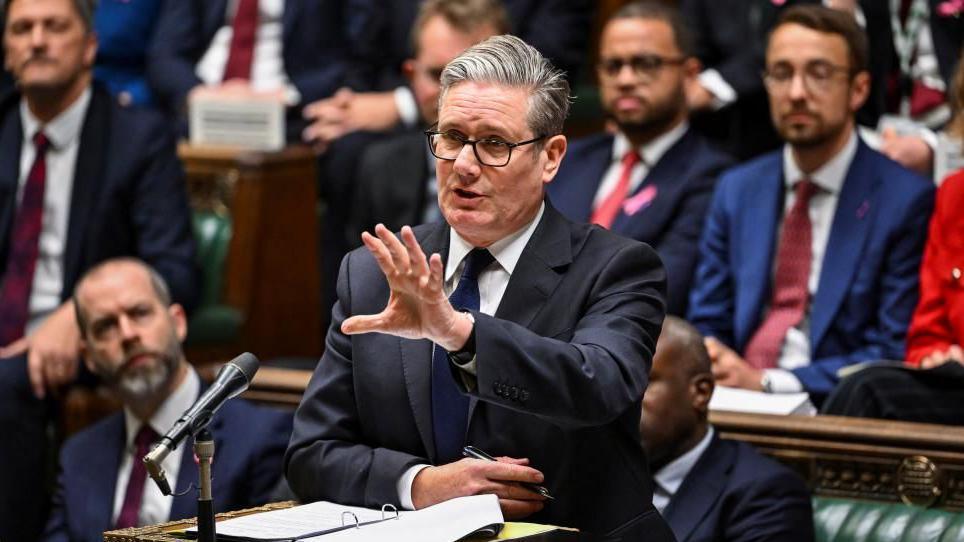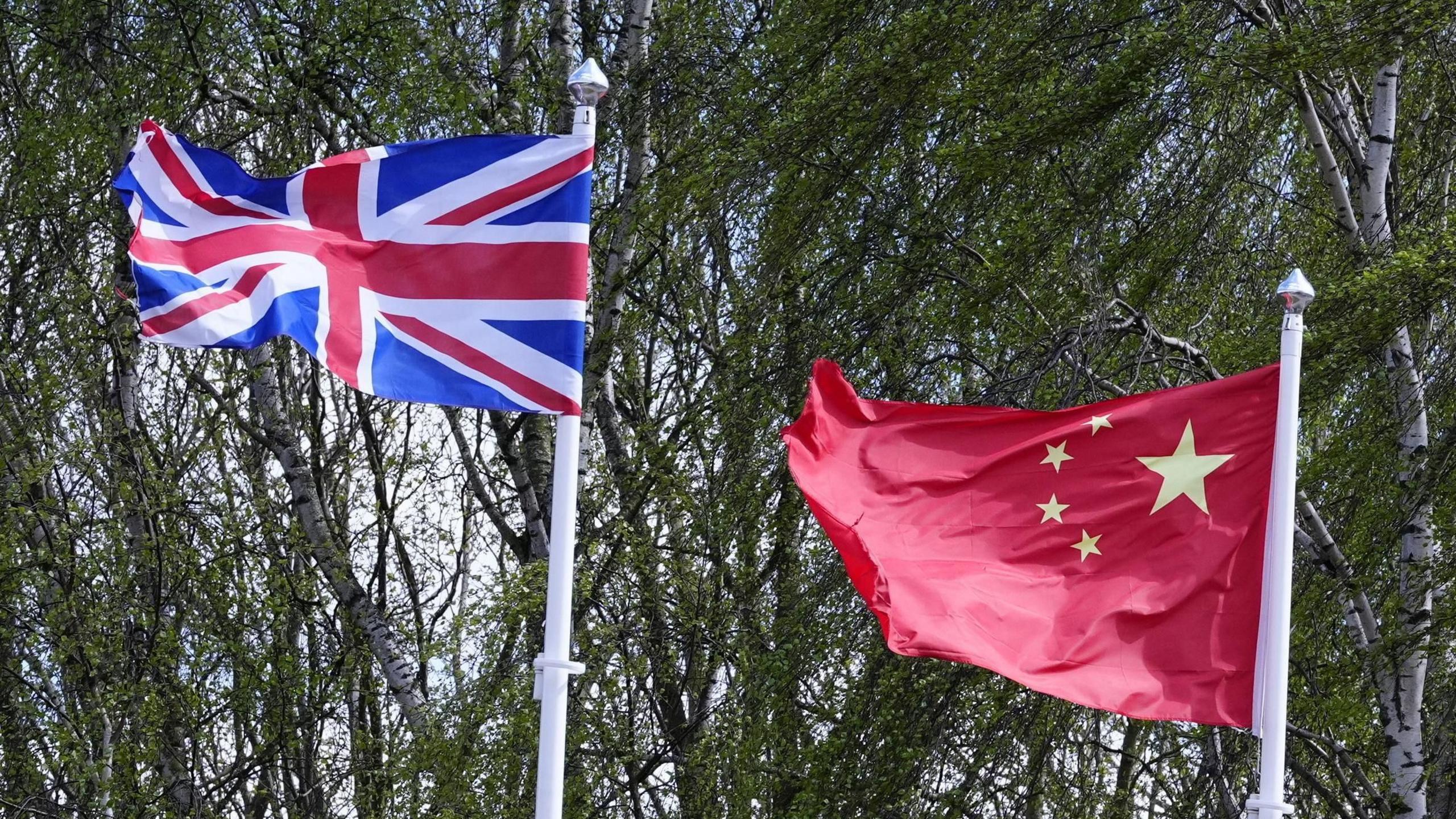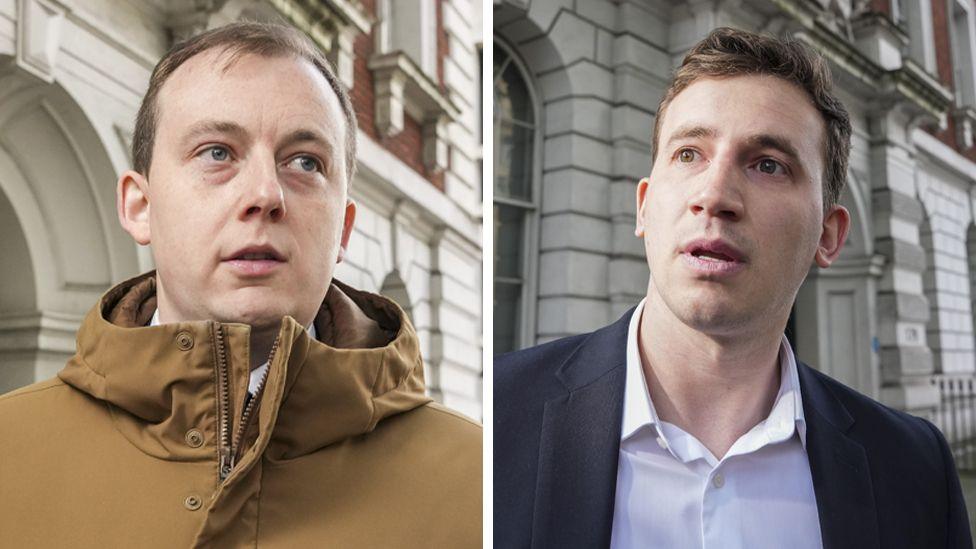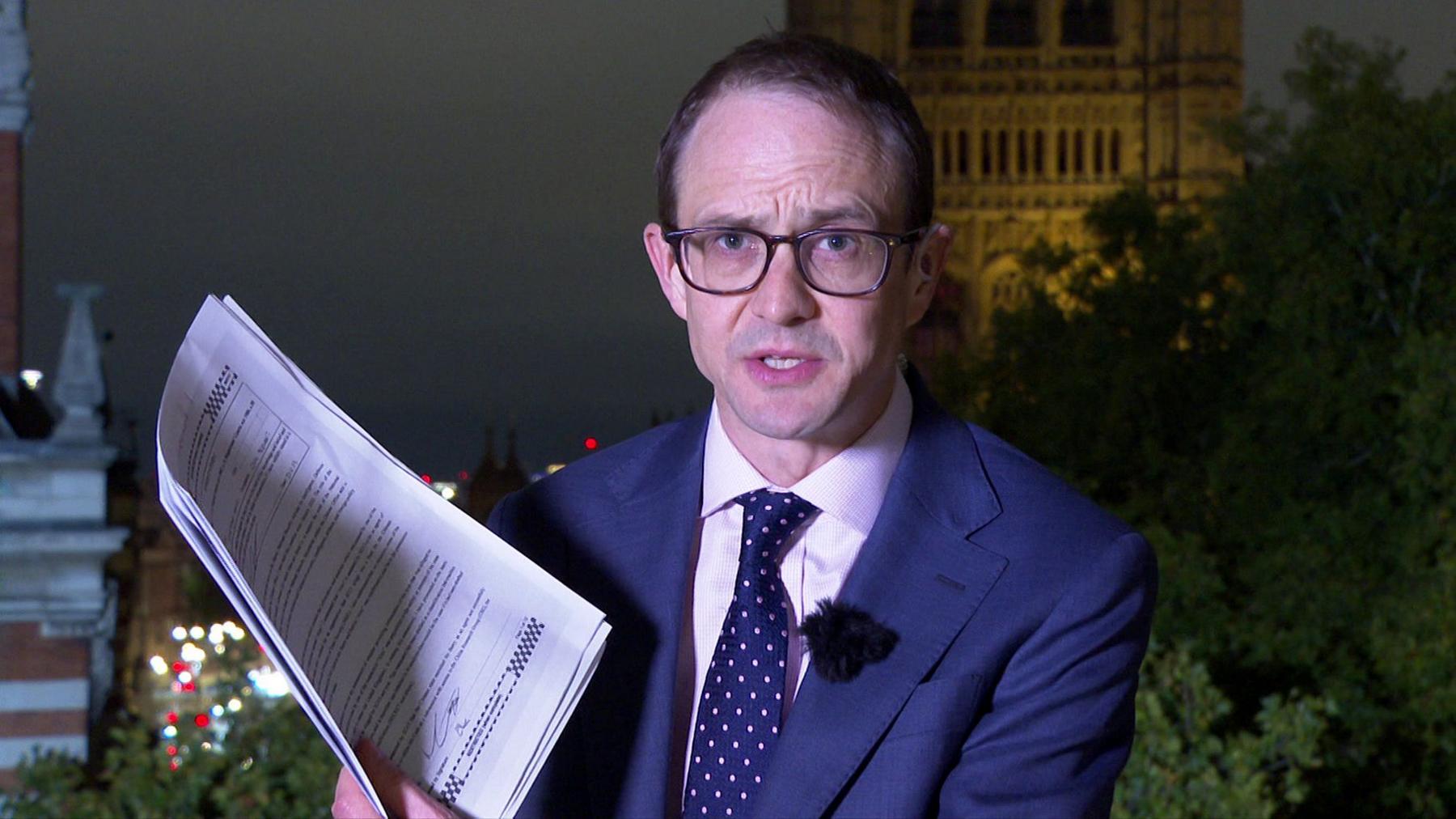The unanswered questions after release of China spy evidence

- Published
The witness statements published by the government last night are hefty, detailed and shed more light than ever before on what the two men were accused of.
The disclosure followed a political row over the sudden collapse of the case against Christopher Cash and Christopher Berry, who were accused of spying for China.
It is worth at the outset stressing that Mr Cash and Mr Berry have consistently denied wrongdoing, the claims against them have never been tested in court and the government's witness statements proceed explicitly on the basis that the allegations levelled by counter-terror police are true.
The publication of the evidence has raised a series of new questions for the government and Crown Prosecution Service (CPS) to answer about the case, in addition to what might come next.
Here's an examination of the key ones:
Questions for prosecutors
Firstly, the witness statements provoke more questions for the CPS, which carries out criminal prosecutions on behalf of the state and ultimately took the controversial decision to drop the case.
In the first witness statement Matthew Collins, the government's deputy national security adviser, said that there are areas where the Chinese state poses "a threat to our people, prosperity and security".
In the second, he describes various ways in which the government believes it has been hacked by Chinese state actors.
In the third, he talks of the "active espionage threat" posed by China to the UK, identifying specific activities they had carried out.
Why was that not enough for the CPS to proceed with the case? Did they really believe that on that basis they would be unable to convince a judge to proceed, and a jury of the severity of the threat posed by China?
Is the CPS position that the government's witness statement did not quite use the right formulation of words to make its point about the challenge of China? If so, did they specifically ask the government to use a different form of words? Would it even be appropriate to seek to shape a witness's evidence in such a way?
These are questions that senior MPs asked the head of the CPS - Director of Public Prosecutions (DPP) Stephen Parkinson - about in a private meeting yesterday. It seems they were unimpressed by his answers.
Questions for the government
There are questions for the government thrown up by the witness statements too. The first witness statement, which is by far the most extensive, was prepared and submitted when Rishi Sunak was prime minister. But the latter two were filed earlier this year after Labour came to office.
Sir Keir Starmer's position over the past few weeks - and remember he used to run the CPS - has been that the only relevant point to this case is what the government's posture towards China was at the time of the alleged offences, which is to say when the Conservatives were in office.
Yet, the very final paragraph of the third witness statement, from this August, says: "It is important to emphasise that the UK government is committed to pursuing a positive relationship with China… we will co-operate where we can, compete where we need to; and challenge where we must."
That final part is copied and pasted, essentially, from the Labour manifesto of 2024. It is, in other words, the Labour government position on China.
If the government was constrained in the way that the prime minister has repeatedly said, then why was that in there?
The answer from government sources on that is that Collins was merely offering wider context about the government's approach to China given that the case was set to be heard in open court in 2025 - nothing more than that.
They argue that as a matter of law it is still the case that all that mattered to the case was the Conservative government's position at the time of the alleged offences and this paragraph does not change that.
Other questions
As interesting as these witness statements are, it's worth remembering that the core allegation being made by the Conservatives in recent days - furiously denied by the government - is that the latter two witness statements supplied by Collins were influenced by Labour ministers or Labour advisers in such a way as to make the case more likely to collapse.
The witness statements do not do anything to substantiate that claim.
That said, Kemi Badenoch, the Conservative leader, is arguing today that the inclusion of the Labour policy towards China raises the question of whether this was suggested to Collins by a government minister or adviser.
Again, government sources are adamant that the answer to this is no.
It is worth remembering again that the first witness statement was filed under the Conservatives. The Conservative position now is, implicitly, that ministers should have tried to make the latter two witness statements as strong as possible because of the seriousness of the allegations.
It would be interesting to know what involvement, if any, Conservative ministers or advisers had with the original witness statement.
What happens next?
It seems inevitable that Mr Parkinson will be called to give evidence to a parliamentary select committee so that MPs can pursue in public view the question of why he decided to drop the case.
It also seems likely that somebody from government will have to give public evidence to a select committee about this case, beyond a private evidence session scheduled for late November with Jonathan Powell, the national security adviser.
The most significant ramifications of this row may prove to be unrelated to the specifics of this case.
It has provoked serious allegations from Dominic Cummings, Boris Johnson's former chief adviser, about Chinese penetration of sensitive British data - which have only been partially denied.
It has precipitated the publication of witness statements describing at length serious concerns held by the UK government about China's activities and intentions.
Questions about the threat posed by China are now at the heart of British political debate in a way they have not been for some time.
All this while Olly Robbins, the head of the diplomatic service, is in China for long-planned meetings, months after Chancellor Rachel Reeves led a trip to the country to seek deeper trade ties, with Starmer still expected to become the first prime minister to visit the country since Theresa May in 2018, and with a decision looming over China's application to build a new embassy in central London.
Has this row made the government's intended diplomatic and economic approach to China politically unviable - is a hardening of the UK's stance now inevitable?
That may be the most important unanswered question of the lot.
Related topics
- Published16 October

- Published16 October

- Published16 October
